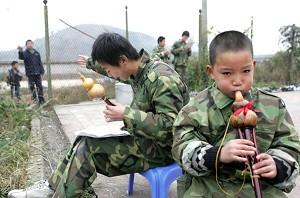According to a recent report from the Beijing Morning Post , a recent spot check of more than 3,000 Beijing middle school students showed that less than five percent of the children loved their parents; nearly 70 percent students expressed antipathy or extreme antipathy towards their parents. To some of the children, their parents were even “FIB” – “foolish, idiotic, and brainsick.”
Children’s attitudes towards their parents are, above all, shocking: 6.6 percent of the children are afraid of their parents; 13.1 percent revolt against their parents; 56.3 percent extremely revolt against or hate their parents; and 19.2 percent feel indifferent about their parents. Only 4.8 percent like their parents. When responding to whose opinions they care about the most, more than half chose “classmates” or “friends,” nearly 35 percent chose their teachers, 15 percent chose their parents and 4 percent chose other members of the older generation. For the students, schoolmates and friends are most important, followed by teachers, and then by parents.
The survey also shows that 55 percent of the parents wish that their children obtain a doctorate degree, while 83.6 percent require that their children achieve within the top 15 highest scores in exams.
For most of the children, such high expectations and requirements are just unachievable. Vice Director of the China Youth And Children Research Center, Sun Yunxiao, believes that many children have failed in achieving these expectations and thus developed a loser mentality. They lost their confidence and relapsed into panic and misery.
Psychologists believe that the children’s unhappiness results from the way their parents dealt with the repeated failures. Facing frustrations at this crucial period of growth in their children’s lives, many parents try to help their children with what they believed to be effective ways, but the results were often just the opposite of what they intended. The children became more unhappy than happy.
Director of the Children Research Institute of China Youth And Children Research Center, Sun Hongyan, holds that, with the emergence of modern media and technology, children now have more opportunities to learn and obtain information. An eight-year-old today can understand many adult affairs.
Experts also believe that hidden violence in the family is another factor that cannot be ignored when looking at the relationship between children and parents. In present times parents don’t usually beat or curse their children but they often punish them by refusing to speak to them for several days. This kind of “cold shoulder” violence is not uncommon in today’s families, and it is often a direct cause of children’s apathy or hatred towards their parents.





